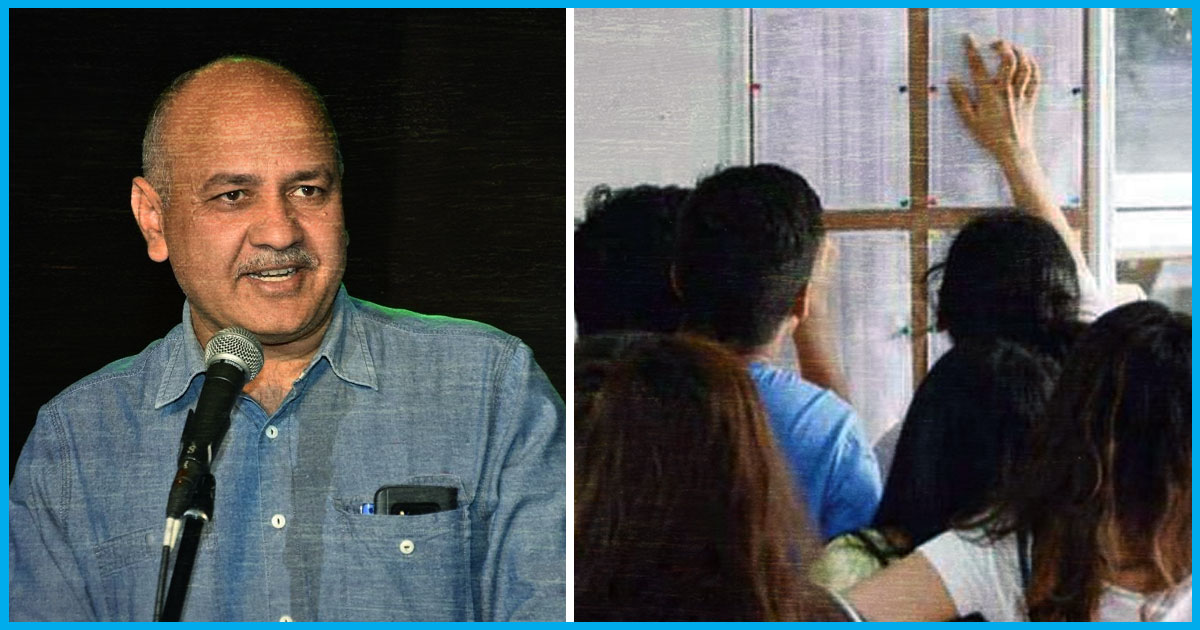
Delhi Govt Schools Fare Poorly In CBSE Class 10 Exams; Pass Percentage Dips By 23% From Last Year
6 Jun 2018 5:26 AM GMT
Last week, Central Board of Secondary Education (CBSE) declared the Class 10 (Secondary School Exam) results. After the overwhelming success of Delhi government schools in the Class 12 exams, a pass percentage of 69.32% in class 10 show the other side.
The overall pass percentage of Delhi schools including the private schools, government-aided schools, government schools and Kendriya Vidyalayas is 78.62%, a difference of 8.08% from the national percentage of 86.70%.
This year the CBSE class 10 results saw a 4.25% dip as compared to last year when the nation-wide pass percentage was 90.95%.
What are the different views?
As reported by the Financial Express, Delhi’s education minister Manish Sisodia said that the Delhi government schools have the lowest pass percentage among all categories affiliated to the CBSE, but the government schools’ performance has improved as compared to the pre-boards held earlier this year. He added that 92.44% pass rate was witnessed in 2017.
While many have cited the ‘No-detention’ policy and the fact that board exams were made mandatory after a gap of seven years as the reason for the dip in performance, the critics led by Congress’ Ajay Maken have raised their concerns regarding Delhi’s education system.
In recent years, Delhi government’s education initiatives, led by now-former advisor Atishi Marlena, have shown a significant progress. However, these education reforms have been accused of ‘filtering’ students. As students can’t be failed till class 8th, schools tend to hold back the weak students in class 9th, to boost the pass percentages in class 10 and class 12 exams.
“After these students fail, we send them to open schooling to pursue the rest of their school education,” said Atishi Marlena to The Print.
The data also shows that since 2013-14, the pass percentage of class 9 in Delhi government schools is hovering around the 50% mark which means that of all the students who are reaching class 9, only half of them reach class 10 in their first attempt. However, this does not tell us why there was a 23.12% dip in the results of class 10.

As reported by DNA, AK Jha, principal of Government Co-ed Sarvodaya Vidyalaya, Rohini, said, “The (No-detention) policy led to a dismal performance of students till class eighth. It has badly affected the learning level of students. Then in class IX, students are given multiple chances to clear papers they have failed in. That is why they could not perform up to the mark in class X.”
“The no-detention policy had a system of continuous and comprehensive evaluation (CCE), which was a means to measure the progress of students. We are very regular with our CCE; hence the number of children dropping out in Class 9 is very less. This is something that government schools do not do, resulting in large dropouts even after Class 7,” said a private school’s principal who spoke to The Print on the condition of anonymity.
Since 2010-11, students of class 10 had the option to sit for internal exams. Reports suggest that the nature of boards exams with the full year’s syllabus is perhaps responsible for the fall in pass percentage.
What is the No-detention policy?
Article 21-A of the Constitution of India as per the Right to Education Act 2009 guarantees free and compulsory education to every child between 6-14 years of age. One of its provisions was to introduce the Continuous Comprehensive Evaluation (CCE) method instead of year-end exams. The students of class 5th – class 8th could not be held back, failed, or asked to repeat a year under the act.
The effect of the ‘No-detention’ policy has been debatable. On Saturday, Union HRD minister Prakash Javadekar said that centre is planning to amend the act and might do away with the No-detention policy.
The Logical Indian Take
The dismal results of Delhi government schools in class 10 is a worrying sign. The Delhi government needs to find out, and address the reasons behind the 23% dip in class 10 results.
 All section
All section













